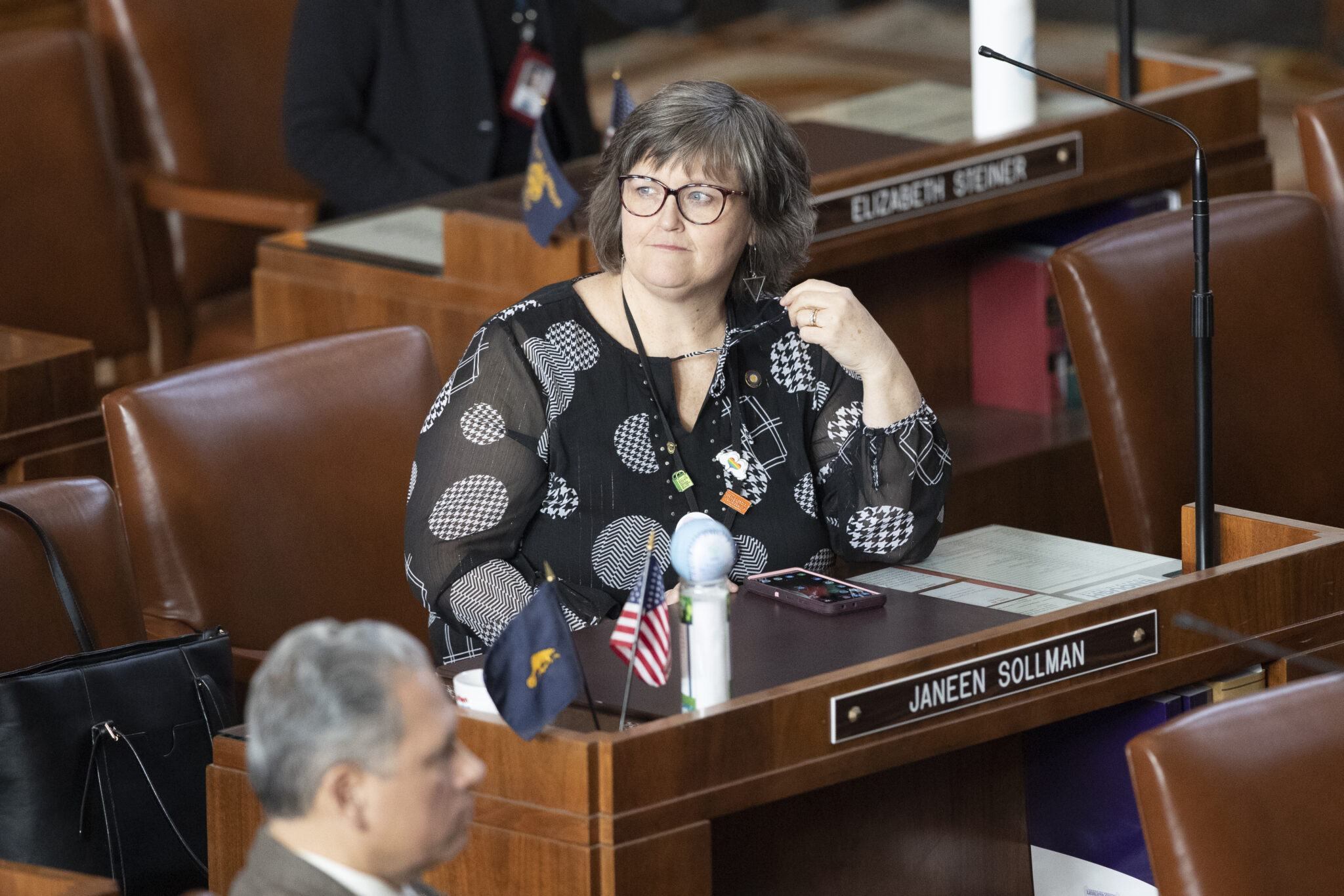Capital Chatter: A funny thing happened on the way to the forest
Published 8:00 am Thursday, February 16, 2017

- Capital Chatter: All sides waiting for Brown to lead
Wednesday was the first meeting this year of the State Land Board, comprised of the state treasurer and secretary of state — both of whom are new to their jobs — and the governor. The trio posed smilingly for a group photo before the meeting. By the end, the smiles were absent.
Everything went smoothly until the board reached the final agenda item, a supposed information-only update on selling the Elliott State Forest.
The Coast Range forest in Coos and Douglas counties has a constitutional mandate to produce revenue for Oregon schools. In recent years, lawsuits have tied up much of the logging, which is why the State Land Board had looked to sell the forest and put the proceeds in the Common School Fund.
The state received only one purchase bid, from Lone Rock Timber Management Co., Cow Creek Band of Umpqua Tribe of Indians, and the Confederated Tribes of Coos, Lower Umpqua and Siuslaw Indians. Other tribes and organizations also are involved.
Democratic Gov. Kate Brown had announced that she no longer supported a sale and now wanted the forest to remain in public hands. On Wednesday, Republican Secretary of State Dennis Richardson and Democratic State Treasurer Tobias Read voted to continue the sale process — with some modifications suggested by Read — over Brown’s strong objection.
The machinations were intriguing:
• Brown never explicitly said why she had changed her mind, having been on the board when it pursued the potential sale. She did cite new information.
• Read, who is less than two months into his job as treasurer, moved to amend the sale process but go forward with it. I was told that he feared that the lone bidder — Lone Rock and the tribes — would walk away if the process were delayed. He and fellow newcomer Richardson thought the sale price was too low, but it was what the board previously set and should be honored.
• Under the state’s open meetings laws, the three board members can only discuss board matters with each other at a public meeting. However, Read had signaled his intentions through his staff.
• Before Read’s motion was voted on, Brown declared a recess — which turned out to be a long one — for state officials to consult with state lawyers. Officials and lawyers shuttled in and out the side doors.
• Brown then called for public testimony, which, not so coincidentally, favored her desire for continued public ownership. Meanwhile, the board agenda emphatically stated: “Public Testimony — The State Land Board places great value on information received from the public. The Board accepts both oral and written comments on consent and action agenda items only.”
• Because public testimony was not on the agenda, Richardson challenged it and asked whether Brown was trying to make him miss his afternoon flight to Washington, D.C. She overruled him but promised to conclude the meeting in time for his departure.
• The board voted 2-1 in favor of Read’s motion to pursue the sale process, or protocol, as amended. On the losing side, Brown then ordered the Department of State Lands to prepare a public-ownership option anyway for the April board meeting.
• Richardson challenged her directive, because it went against the board’s vote. Brown disagreed. She then ruled that his challenge had died for lack of a second.
• As best I could hear, Brown had not required “seconds” for other motions during the meeting. Several officials told me later that the board lacks formal procedures for conducting meetings. In that case, I would think Robert’s Rules of Order and the state public meetings laws would govern the procedures.
• Officials also said the board was free to change its agenda, including taking action on an item that had been listed as informational. On Wednesday, the board never voted to approve the agenda or to change the agenda.
• School officials told me they would sue if the State Land Board retreated and did not sell the forest. On the other side, environmentalists already are suing to stop the sale.
• What the governor said: The Governor’s Office sent me this statement Thursday afternoon in response to my questions about the Gov. Brown’s change of mind and whether she had the authority to order the director of the Department of State Lands (DSL) to prepare a public-ownership option:
“Governor Brown addressed key issues that have changed since the Land Board last year developed the Elliott State Forest protocol. Notably, when the protocol was initiated, the monetary value of the Elliott was anticipated to be as high as $500 million and harvest was expected to be 40 million board feet to make a decent return.
“Part of the Protocol was appraising the actual timber value of the forest, and the appraised value on December 31, 2016 was $221 million. It is much easier to make a reasonable return on a $221 million asset, and the state can meet that target through sustainable harvest and a trust land transfer. Now that we know the value, the presumption that the forest should be sold becomes irresponsible.
“Additionally, we know from the Global Warming Commission that Oregon is not on track to meet our greenhouse gas reduction goals. We also know Oregon forests are a carbon sink, holding an estimated 3 billion tons of carbon. As Governor Brown said in the Land Board meeting, ‘Growing trees is something the Elliott does well, and in public ownership the forest will help the state meet our climate goals.’
“Lastly, the future of federal public lands is in some question. Governor Brown feels strongly that the Elliott is now more valuable as public land — land on which to hunt, fish, hike, or conduct educational activities for Oregon schoolchildren, such as Outdoor School — than ever before.
“While the Land Board does hire the DSL Director, the Governor, as chief executive, does have authority to provide administrative and operational direction to the Director.”
• Seeking salvation in the state budget: Teachers told of working 12 hours a day and using their own money to buy books and desks for students. Public defenders warned that they were working at capacity and could not afford any cutbacks. And the potholes on Interstate 5 make for a dangerous commute, added another lawyer.
One after another, scores of Oregonians came before the Legislature’s budget-writing committee last weekend, asking it save — even expand — their favorite programs.
Occasionally, someone thanked the 23 legislators at Friday evening’s budget hearing for their hard work. Occasionally, someone acknowledged that legislators face a tough task: adding taxes and/or cutting services to fill a $1.8 billion hole in the 2017-19 state government and schools budget.
Often, they knew whom to blame: The Legislature’s failure to make Oregon corporations “pay their fair share!”
It was if those testifying were trying to refight last fall’s bitter campaign over Ballot Measure 97. The corporate tax measure was defeated, but many of those testifying demanded that the Legislature enact it in some form anyway. Some carried tip sheets and notes distributed by an organization that backed Measure 97.
Many of them repeated last fall’s campaign slogan that Oregon has the lowest business taxes in the nation.
That is true, by the way, according to one analysis. According to other analyses, it’s not true. As with most statistics, the outcome depends on what you put in and how.
If anyone mentioned that disparity in statistics, I missed it.
Neither did anyone mention that the spiraling costs of the Public Employees Retirement System stem from self-indulgent decisions made decades ago by PERS board members.
Nor did anyone mention that the state expanded the Oregon Health Plan — by hundreds of thousands of patients — with no idea of how it would finance their insurance in the long run. The feds provided the money, so Oregon spent it. And now the feds aren’t providing as much.
No one suggested where to cut or how to prioritize cuts. Rather, the testimony — heartfelt and honest — was about spending more.
What is the Joint Ways & Means Committee to do? Some members react on an emotional basis to the heart-wrenching stories. Some focus on the hard numbers.
The testimony did ammunition to critics who say the committee’s statewide hearings are aimed at rallying support for tax increases.
• Speaking of PERS:
Public employees held a press conference this week and urged the Legislature not to reduce their future PERS benefits.
They were employees hired under the latest version of PERS, and whose benefits already won’t be nearly as good as their predecessors’. Thus, they have legitimate points. But when reporters tried to ask what they would trade in return for keeping PERS intact, no one would answer.
• Oregonians want to be heard: The budget hearings Friday evening in Salem and Saturday in Portland each lasted more than two hours. Still, there was not time for dozens of people to testify.
With such large crowds, I wondered why the Ways & Means Committee didn’t break into smaller, separate panels to take testimony so everyone got heard. Or maybe have half the committee listen for two hours, and then have the second half arrive to hear the rest.
By the way, it would be a good idea to take a break at least hourly. Extensive sitting is bad for one’s health. The American Journal of Epidemiology reported last month that too much sitting hastens biological aging.
Besides, even experienced legislators get antsy.
• Effective talk: I asked the Ways & Means co-chairs, Sen. Richard Devlin and Rep. Nancy Nathanson, for tips on how Oregonians could be most effective when testifying. Their suggestions:
• Arrive early and sign up as soon as possible so you’ll get to testify.
• If someone else has already said something similar, acknowledge that and shorten your comments.
• Focus on a specific area instead of broad topics.
• Be specific about what a program means to you, your family or your friends.
I would add: You have two minutes to testify. Honor the time limit. Speak from the heart, but rehearse what you have to say. Be respectful. Afterward, don’t beat yourself up if you forget to say something. That happens to everyone.
• The budget hearings continue:
• Hermiston: Friday, Feb. 17, 5 to 7 p.m., Main Commons, Hermiston High School, 600 S 1st St, Hermiston
• Madras: Saturday, Feb. 18, 1 to 3 p.m., Performing Arts Center, Madras High School, 412 Buff Street, Madras
• Ashland: Friday, Feb. 24, 5 to 7 p.m., Rogue River Room, Southern Oregon University, 1250 Siskiyou Blvd, Ashland
• Eugene: Saturday, Feb. 25, 1 to 3 p.m., Rooms 308-309 Building 17 (The Forum), Lane Community College, 4000 E 30th Ave, Eugene
• Tillamook, March 3, 6 to 8 p.m., Officer’s Mess, Port of Tillamook Bay, 6825 Officers Row, Tillamook
Dick Hughes has been covering the Oregon political scene since 1976. Contact him at TheHughesisms@Gmail.com.





